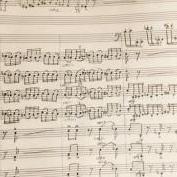Leaderboard
Popular Content
Showing content with the highest reputation on 04/07/2023 in all areas
-
Long post, this is basically a mini essay, but curious to hear your thoughts on it. Something I've found concerning in the last decade is how fewer and fewer people, especially among younger generations will discover new music through sheer love of music. They basically only listen to new music, and by that I mean new-to-them, if they're forced to. In the late '90s and early 00s, when Napster and later Limewire came out, I would spend hours on the computer just clicking through stuff, giving the family computer viruses, stumbling upon NSFW audio files, and occasionally: Something great that I'd never heard before. When MySpace came out, it was an endless rabbit hole of new bands. I would listen to their music players, which often just contained short samples of tracks on repeat, and then I would click through their friends' lists and find new bands. I'd open up Wikipedia and sort "heavy metal bands by country" and go through them alphabetically, hunting down their MySpaces. I would swing by the CD store every chance I got, and would sometimes buy new CDs just because it seemed cool. The next day at school, my friends and I would trade bands. We'd write down the names of the best bands we discovered through any of the aforementioned means and exchange them. To this day, I will just kick back and listen to music for hours instead of watching movies, playing video games, and all these other things people seem to do in their free time for entertainment now. Everyone I went to highschool with did this. My parents did this back in the tape days. Gen-X definitely did this, boomers did it, etc. Seemingly nobody, unless they are a self-professed "music lover" across age ranges now, does this: Just listens to music for the sake of pure enjoyment. Instead, what we're seeing is that other entertainment mediums are serving as kingmaker; the filter for who gets heard and who doesn't. It seems to be now, that having your music placed in a trailer, video game, TV show, or film, is serving as a subconscious signal to average people that it is worthwhile, and music which isn't in these things probably sucks. I would point to the examples of Crazy Lixx and Wig Wam. Both Rock bands from Scandinavia had been around 20 years before finding global success. It took the Friday The 13th Game and the HBO show "Peacemaker", respectively, for these bands (particularly Wig Wam) to go from getting dropped by their agent due to "lack of interest in the band" the day before, to playing on National TV the next. But if you were a dedicated rock fan beforehand, you definitely knew who they were — but it took a mediocre video game and corny TV show on HBO for anyone outside of a dedicated subculture to care. Basically, bands need to become a meme now or have the career Survivor had in the '80s to get noticed, rather than putting out good music, touring, and getting noticed on the merit of simply writing good music. Not quite 20 years ago, when my friends and I were telling everyone about this crazy band from the UK called "Dragonforce", we saw the beginnings of this when the band went from niche to meme because they were the final boss song in Guitar Hero III. After the Guitar Hero craze died off, Dragonforce's music got better, but they wound up demoted to playing the club circuit on a shoestring budget and probably will the rest of their careers. The only other way anyone will listen to a new band, is if their friend has the aux cable and puts it on while driving. None of the rock music stations I'm aware of in North America have ever played ANY of the myriad of great metal and rock music that has come out, especially out of Europe, in the last 20 years, but Ozzy and Metallica still dominate. This isn't just a problem with rock music, it poses a big problem for composers. If you put out a video game remix or TV show theme cover, it is guaranteed to get at least a triple-digit amount of plays on YouTube, even if it's mediocre. You can get hundreds of subscribers out of it, but your original works will only be listened to mostly by other composers. They don't really like your music, they like how it reminds them of that movie or game they enjoyed. Would anyone have given the Skyrim Theme or Jeremy Soule the time of day today were it composed just for the sake of it? Would anyone today care about John Williams' music if they didn't already love Star Wars films? 30 years ago, Yanni became a world-renowned composer because people loved his music and his unique, historic concert locations. His music didn't come from a film and it wasn't a meme. People tuned in to PBS to watch is concert at the Acropolis to hear his music there. 40 years ago, in Los Angeles, people would go out every weekend to the Roxy and The Rainbow specifically to hear new bands, and that's how Motley Crue and GnR got record deals. Later, people would buy their records just to kick back and soak that music in. Today, such people like that are in a clear minority. Where I think this bodes ill for the future of new composers, is that if you are a composer, people will only pay attention to what you're doing if you are already scoring games and films they know. Otherwise, you're probably going in the dust bin. It will be very hard, under this paradigm, for composers to build any listener base at all without having "scoring credits" to boast beforehand, and they will struggle to get a gig, because nobody will listen to them. It creates a vicious cycle; a trap. There will be exceptions, but they are just that. It seems like most people are no longer genuine "music lovers", and rather that to most, music is just a companion product to some other entertainment product that they are nostalgic for; video games have been credited with "saving the symphony orchestra", and I think that indicates a culture in decline.2 points
-
Well I don't think about technique when I'm composing. I just want to do what's need to be done for the music. I learn everytime when I write and certainly don't "use" them to write. When I get outside of my music ans start analyzing them it becomes analysis and not composing and it always fail for me. Fux can gather the rules Palestrina used to write, but I am certain Palestrina didn't have this rule in his mind when composing since they are internalized and unnoticed when composing. If it's noticed the composing process will be disturbed. It's always wonder when I analyze my music aftermath since I can't believe they are composed by me. Henry2 points
-
Certainly interesting. But perhaps I've lived too sheltered a life. There's probably some truth in what you say because it can take a lot of work to winkle out how a composer achieved something especially if no score is available. Most technical secrets I've leaned came from score study and (limited) cultural study. If I want to find out how she/he did it? I get hold of the score. But that assumes some facility with score reading which takes practice; and a score is available which too often it isn't. So it can mean concentrated, repeated listening and analysing what's going on at the point of focus in a piece. There's no secret to my stuff as I provide a score. (I once worried about plagiarism but less now as my stuff is modern and unlikely to fall victim to that. Even so, I register everything with the PRS.) I use the orchestra as an artist might a paint box. Given to synaesthesia, I'll paint a mood rather than a program telling a story or "photorealistic" scene. I'm ok with theory inasmuch as it's needed - and while I write basically tonally, I carefully manage dissonance and "remote consonances" as Schönberg called them. If a note is in the harmonic series of the root's fundamental up to the 15th harmonic, it's game! But now, I forget about time signature and key signature. Interestingly, Chopin (the site owner) recently remarked it's easier to read, written in a constant time signature than keep changing time signatures even if the rhythmic pattern suggests them. Unless it's likely to be a constant compound time throughout, my stuff is in 4/4. But it'll only ever touch a small audience. As long as it makes some kind of sense I'm happy.... but to me the real secret is "does the finished work meet the objectives I started out with? I'm fairly self-critical so when I sit back and review it a month later, is it really what I hoped it would do (for me, anyway)? Alas, too often it doesn't.2 points
-
I started an outline for a short piece (a Tarantella) several years ago, but I never finished it. So I decided to finish it now. It is written in 6(8 (as usual for Tarantella´s) but I also considered a 2/4-th meter. What is your opinion? I would appreciate your feedback. I wish everyone a nice Easter!1 point
-
UPDATED on 4/16/23c Here's a guitar thing in D minor with an arrangement. I'll UPDATE the mp3 as I improve on it with the posting date followed by a letter (as in a,b,c, etc... in the the event I post multiple improvements on the same day.) I've also included a version here with speaking parts. Enjoy. -Rick1 point
-
I work religiously from the bass-up, but there are three concepts that come to mind: The Undertone series The minor mode system as a reflection of the Major system Negative Harmony There is also this, you'd think it would sound awful but it's ethereal:1 point
-
Added PAC and changed the transition a bit and went back to the viola playing the little phrase instead of plucking at the beginning of the middle section... Thank you!1 point
-
Thank you Henry for your quick response. Yes, I agree that the theme in the beginning (and also in recurring parts) is practically identical to the piece of Michael Aaron. I should say that this was totally unintentional. In fact, I was rather inspired by the famous “la Danza” by Rossini. But somehow, I must have had the Michael Aaron piece in my head, probably from someone playing it in the past, and I must have forgotten where it came from. Nevertheless, it is not acceptable for me. It might even mean a breach of copyright, although I never would use this piece for any commercial purpose. I will do the following: 1) I will rewrite the part, which resembles the Tarantella of Michael Aaron. I think that this will be reasonably straightforward (but also an interesting challenge) 2) I will remove the copyright statement on the bottom of the first page of the score. 3) Additionally, If there are any serious complaints, I will remove the piece altogether. Nevertheless, I am glad that you enjoyed the piece. I think that there are a number of fine transitions, including the one in b. 103-104, and some Neapolitan stuff ( check for example b 58-60). Is it difficult to play? You bet! Like the Schubert one. But also many other Tarantella´s are not easy to play, including the “presto con fuoco of the Beethoven sonata nr 18). It is something for the advanced pianist. Henry, thanks a lot for your review! Have a nice Easter1 point
-
Some composers are very secretive about their craft, I think that is selfish and a stupid game for composers and analysts to play. Here I share the techniques that define the music I'm composing now, most of them are well known but still. Polychords and Polymodes: Take two or more scales on the same or different tonics. Label the scale degrees. Build common chords (tertian, quartal, secundal, etc) on top of each degree. Rank the notes of each chord according to the importance you want to give them, I usually rank root > perfect fifth > minor third > perfect fourth Combine the notes from the same degrees from the two scales, ranking higher the notes that repeat. Pedals Any note of high rank in the mode can act as a pedal. The principal chords also make good pedals. Melody and Progressions: Any melody that uses the high ranking notes of the polymode as goalposts can be the structural basis of the work. Any harmonic progression that follows the patterns of the melody in any direction is good. Harmonic sequences derived from repeatedly transposed sections of the patterns are also good. Only highly dissonant notes require resolution, conventional or otherwise. Doubling: Melodies can be doubled at any general interval that the chords allow. They can be doubled to form entire chords. The chords can move in parallel since their only purpose is thickening and colouring the line. More than one melody can be doubled this way but more than three at the same time is so muddy the melodies become unhearable. Rhythm and Metre: Schemes of either can be pitch-associated or not. Douple time is better for rest, triple for movement and odd for instability. Even rhythms generate rest, odd ones different kinds of movement. Syncopation by suspension pushes the music back. Off-beat syncompation does the opposite. Tuplets generate a floating/free feeling of time inside them. Polyrhythms that can be clearly discerned enrich a texture, if they cannot they generate an atmosphere. Texture: All four types stand equal footing but: Long Monophony needs to be extremely varied in durations and metre, otherwise it is boring. Heterophony needs to be more elaborate each layer, almost by definition, to a lesser level than monophony. Homophony can be more simple, specially when dealing with complex chords, though metrical changes are still most welcome. All polyphony is good, the more characteristic the individual melodies the better. Development Every developmental technique compatible with the above is allowed, some are: Augmentation and Diminution of intervals and/or durations. Insertion and deletion of notes. Fragmentation into motifs of longer melodies and progressions. Permutations of any of the materials. Modulation and transposition into other polymodes. Serialisation of different materials or paramenters of the piece. Pitch multiplication Retrogradation and Inversion Imitation, Canons and Fugues Hope you found any of this interesting or helpful, and share your own selection with us please!1 point
-
When I write I first get a hankering for a specific type/genre: overture, paino quartet, flute concerto... I then LISTEN to as much music in that form/period/style as I can, and get ahold of scores/ examine them. I then start thinking about/writing down melodic themes, A/B/A or whatever is required. When it gets to writing, I'm at the keyboard, and use Mozart's method: MELODY, THEN BASS, then fill in inner voice. This is paper and pencil at this point. I try to get chord strucutre, progression, stacking right at this time as far as I can. I then paper and pencil an outline fo the movement/piece utilizing the melodic material ( something like (Expo: D major: A, A1, (at V: B, B1, codetta, Dev: statement of A1 at V, modulate to rel. minor (F). etc... Then: Im at the computer, with Print music, shaping a first pass effort at my outline. This is the longest portion. Misteps, learing how my imagination NEEDS to appear on the score, failed ideas, get hashed out. Revisions to outline. As with others here, I let the melodic ideas determine chord progressions, and form determine modulations, iterations.1 point
-
Yes, like the other replies so far, I just write what the music requires. Once I have decided firmly what a section should sound like, I go back and analyze it to be sure that key signatures are correct, accidentals are spelled correctly, and conduct my way through it to decide if I have a bar in a different meter thrown in the middle somewhere, or if a fermata is the better way to show what I want. But I don't write with particular intention. If I analyze as I start to wind down with a piece, and see that with the addition of a single note I can have a ______ chord, I will try that out, but I'm much more likely to have written the whole thing, and then look back and see that it's in gypsy minor. I write the first handful of bars, and then may decide to shift up or down a key, if I feel I will want more room to add higher or lower notes, and am going to run out of space given the voices I'm writing for in the current key. I don't think: I should add a hemiola. I think: next it should go like this, and then this, and then this... At at some point, when I'm satisfied with what I have and look back at it, I see that I added a hemiola. Or that I have changed meter. Or that some added chromaticism has evolved into a full change of key. When I DO really consciously use a technique, it is generally because I have been enjoying someone else's piece that does a certain thing, and want to apply it to my own current composition. Or because I've gotten stuck about where the music should go next, and it feels like it is time for a shift in the character of the piece: this idea has run its course, it's time to shake things up, but I'm stuck.... Can I invert some of my thematic material? Would a sudden key change be exciting? Change of tempo? But mainly, the music knows where it wants to go, and I just have to have a quiet space to work and enough time, so I can listen to it. All that said, things I seem to do a lot: play with different modes, write in 6/8, texture shifts between homophony and polyphony, use the addition and subtraction of voices to change the overall dynamic, instead of writing in a dynamic change. None of this is particularly novel. 🙂1 point
-
Hello Rick, I really like your piece. It has a very good structure and progression. Your use of harmonics and chords is excellent. I could not identify the sound of a flute, but anyway, the muddy sound of the melody was very pleasing. I am doubtful about replacing it by a more penetrating sound of a flute. It may destroy the mood. Instead, I would strongly recommend you (and a agree here with Henry) to include lyrics, and a make a song with verses of it. With the right type of voice, it could be made into into something rather spectacular. There is also room for an additional (instrumental (or second human) voice, particularly in some of the last verses. (I would then get rid of the choir). All together, very nice work with a lot of potential.1 point
-
I agree. If I have an ensemble in mind, I write specifically for that. Sometimes, there's an idea in my head, and I utilize an instrument I know. I guess it just depends. Sometimes it matters what the idea is, and I craft an ensemble around it. Other times, I'm playing guitar or piano and start to discover something. Interesting discussion.1 point
-
Haha I don't pick the instruments; the instruments pick me to write for them. When they appear in my inspiration and muse I will write for them in that particular sound they are presented. That's the case for my Clarinet Quintets and String Sextet. I will try to analyze my inspirations and fearure their features, both motivically and harmonically but it's not me who compose them. I am just the mother or a peasant when the child comes from the Heaven. I am quite old fashioned as I still find music materials much more important than the timbre. Timbre is crucial but it's only in the sonic level. Having colours and timbre will be much easier to compose. I spend 9 days on my wind quintet but several months to my unfinished String Sextet movement. You can spend much less time on music materials when colours can compensate for that. So I will say the String Sextet a quite difficult combination for me. Henry1 point
-
How do I decide? I first think of a sonic colour, then I pick the instruments and harmonies that will express it best. For example: if I want a magical winter feel I'll go for clarinets, flutes, horns and strings and then harmonies derived from Dorian and Lydian. Which ensembles I find more challenging? Homogeneous ensembles like String Orchestra because timbre variety drives my creativity to a great extent.1 point
-
Hi @Giacomo925 I certainly like this more! I enjoy the viola pizz. and the cello providing the flow in the middlr section! I still think for my personal taste the viola can play the melody a bit longer for later voice exchange, but it's better now! I notice in the first section you ends on a half cadence then moves on directly to the middle section. Will you first end the first section in PAC then add a transition to the middle section? Ofc it's better for them to be in contrary motion in b.1 and b.44 and I don't think it's any problem there in the original version. In the case of b.17 it's also the same. You prevent those parallels skilfully there and I don't find with problems with that at all! Thanks for your update! Henry1 point
-
Yeah consultation fee required on top of the $100000000000000 recording fee for each prelude!!!!!!!!!!!!!!!!!!1 point
-
Thanks for everyone who voted for my piece in the competition, if people want to see it again or say something about it you can do that here. Have a nice day 🙂1 point





